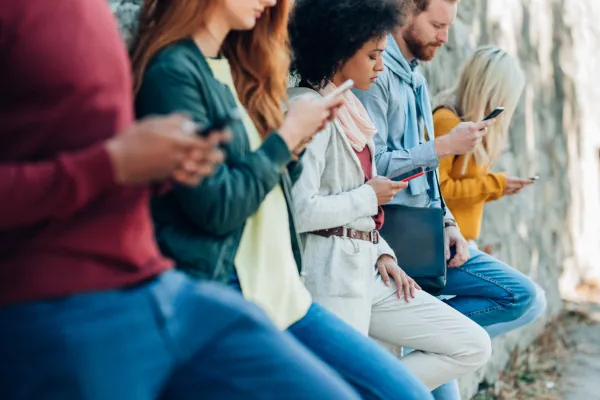

The Impact of Social Media on Mental Health
Welcome to the digital era where social media platforms have become integral parts of our daily lives. From scrolling through Instagram feeds to engaging in lively discussions on Twitter (X), these platforms offer us unprecedented connectivity and access to information. However, amidst the allure of likes and shares, it's crucial to acknowledge the impact social media can have on our mental health.
What is Social Media?
Before we dive into the complexities of its relationship with mental health, let's define what social media actually is. Essentially, social media refers to online platforms and websites that enable users to create and share content or participate in social networking. From Facebook and Twitter to Snapchat and TikTok, these platforms allow individuals to connect with friends, family, and even strangers across the globe.
Perspective on Mental Health Issues
Mental health includes our emotional, psychological, and social well-being. It affects how we think, feel, and act, and plays a significant role in determining how we handle stress, relate to others, and make choices. Unfortunately, mental health issues are widespread, affecting people of all ages and backgrounds.
Mental health challenges are wide and come in different forms, from anxiety and depression to addiction and loneliness. Factors such as genetics, brain chemistry, life experiences, and environment can all contribute to the development of mental health disorders. Moreover, the stigma surrounding mental illness often prevents individuals from seeking help, making their struggles more difficult.
In recent years, researchers and mental health professionals have turned their attention to the relationship between social media use and mental health. The Internet offers both opportunities and challenges for our mental health. That’s why it’s important to understand the connection in order to promote healthy online behaviors.
On one hand, social media provides a platform for self-expression, community building, and access to support networks. It allows individuals to share their experiences, connect with like-minded individuals, and find valuable resources related to mental health. During times of isolation or crisis, social media can serve as a lifeline offering friendship and stability.
However, excessive or unhealthy use of social media has been linked to various mental health issues. The curated nature of social media feeds can create feelings of inadequacy, as users compare their lives to the highlight reels of others. The constant exposure to unrealistic beauty standards, cyberbullying, and fear of missing out (FOMO) can contribute to anxiety, depression, and low self-esteem.
Why a Study of Social Media and Mental Health is Important
Given the pervasive influence of social media on our daily lives, it's essential to understand its impact on mental health for several reasons:
1. Identifying Risk Factors
By examining patterns of social media use and its association with mental health outcomes, we can identify potential risk factors and protective factors. This knowledge can inform the development of interventions and strategies to promote positive online behaviors.
2. Informing Policy and Guidelines
Insights from research can help policymakers and social media platforms develop guidelines and policies to safeguard users' mental health. There’s much that can be done to create a safer digital environment, including implementing features to encourage mindful usage and addressing online harassment and misinformation.
3. Empowering Users
Education and awareness are powerful tools for empowering users to use social media mindfully. When they understand the potential impact of their online behaviors on mental health, users can make informed choices and cultivate healthier relationships with technology.
A Quick Look At Theoretical Perspectives
Social Comparison Theory
First proposed by social psychologist Leon Festinger in 1954 - states that we determine our own social and personal worth based on how we stack up against others. Social media provides endless opportunities for comparison. This can evoke feelings of envy, inadequacy, and low self-esteem.
Self-Discrepancy Theory
Psychologist E. Tory Higgins developed the self-discrepancy theory in 1987 - suggests that we experience distress when our perceived self (how we see ourselves) does not align with our ideal self (how we wish to be) or our ought self (how we think we should be). On social media, users often present idealized versions of themselves, carefully curating their profiles to highlight their accomplishments, experiences, and relationships.
Uses and Gratifications Theory
Contrary to other theories that focus on the passive effects of social media consumption, uses and gratifications theory emphasizes the active role of users in selecting and using social media to fulfill their psychological and social needs. According to this perspective, people engage with social media for various reasons, such as entertainment, information seeking, social interaction, and identity expression.
Social Cognitive Theory
Proposed by psychologist Albert Bandura in the 1970s - highlights how users learn from observing others, modeling their behaviors, and internalizing social norms and values presented in online environments. Through exposure to various social media content, users may acquire new skills, attitudes, and beliefs, shaping their perceptions of themselves and others in either a negative or a positive way.
ABOUT US

Jeanne Prinzivalli
Therapist + Coach
I help ambitious, anxious women learn how to trust and put themselves first, so they can stop burning themselves out trying to meet other people's expectations.
SELF CARE CONTINUUM
CLIENT LINKS
LET'S CONNECT
Let’s get you started on relief from self-sabotaging patterns so you can move forward with your life and career passions.
Self Care Continuum Copyright © 2023.




